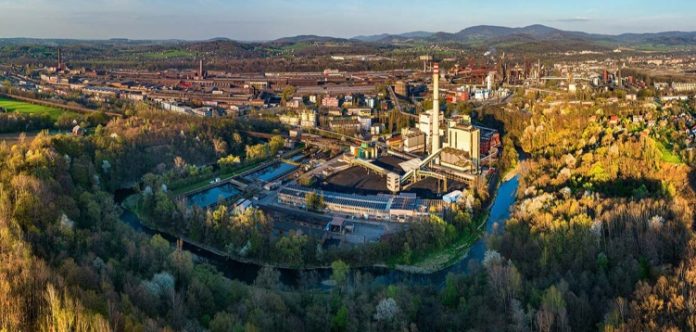The Czech steel industry is not ready for decarbonisation not only technologically but also financially, making it difficult to implement the EU’s decarbonisation plans, Euractiv reports.
Experts interviewed by the Czech News Agency (CTK) said the state lacks clean electricity, hydrogen and other resources to fulfil the EU’s carbon neutrality plan and effectively achieve net zero greenhouse gas emissions by 2050.
There are options for low-emission steel production, including replacing coke with hydrogen as a reducing agent or producing steel from scrap in an electric arc furnace.
However, scrap is not sufficient to meet all demand. The production process needs large amounts of electricity, the price of which has risen dramatically in recent years, Daniel Urban, chairman of the Czech Steel Union, told CTK.
The Petr Fiala government (ODS) has decided to help the industry struggling with expensive electricity by paying part of this year’s renewable energy tax on its behalf.
The Czech Strategy 2021 states that operational testing of the use of hydrogen in industry should start between 2026 and 2030.
However, Czech steel mills do not plan to introduce hydrogen steel production before 2035. According to Urban, it is unrealistic to do it earlier because the Czech Republic and other EU member states have no reserves of their own hydrogen. If this resource is to be used in the Czech Republic, it will most likely be imported.
According to Oldrich Sklenar, an analyst at the Czech Association for International Affairs, the government should develop a plan to determine which industries are of interest to society and to what extent, as well as how to approach their future support, should it be required. This support should focus primarily on investments in, for example, reducing emissions or energy intensity. Income from carbon credit trading could be used for this, he told CTK.
The transition to a low-carbon economy will require decarbonised steel, both for the production of transport vehicles and for infrastructure construction, Sklenar said. He added:
We will not help ourselves by buying steel from abroad because foreign production usually produces more emissions… From this point of view, it is desirable that production continues at home, together with support for its decarbonisation.
